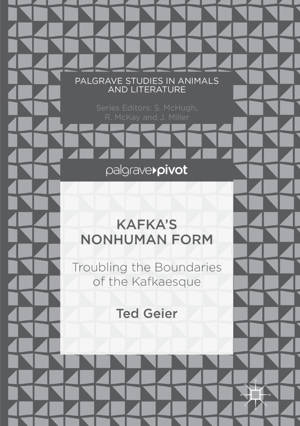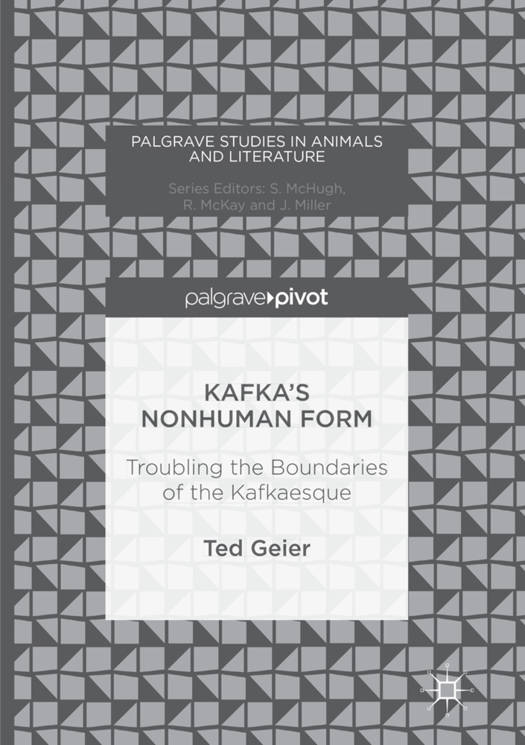
- Afhalen na 1 uur in een winkel met voorraad
- Gratis thuislevering in België vanaf € 30
- Ruim aanbod met 7 miljoen producten
- Afhalen na 1 uur in een winkel met voorraad
- Gratis thuislevering in België vanaf € 30
- Ruim aanbod met 7 miljoen producten
Omschrijving
This book is a compact study of Kafka's inimitable literary style, animals, and ecological thought--his nonhuman form--that proceeds through original close readings of Kafka's oeuvre. With select engagements of Adorno, Derrida, and the literary heritage from Romanticism to Dickens that influenced Kafka, Ted Geier discusses Kafka's literary, "nonhuman" form and the way it unsettles the notion of a natural and simple existence that society and culture impose, including the boundaries between human and animal. Through careful attention to the formal predicaments of Kafka's works and engaging with Kafka's original legal and social thought in his novels and short stories, this book renders Kafka's sometimes impossibly enigmatic work legible at the level of its expression, bringing surprising shape to his work and redefining what scholars and readers have understood as the "Kafkaesque".
Specificaties
Betrokkenen
- Auteur(s):
- Uitgeverij:
Inhoud
- Aantal bladzijden:
- 121
- Taal:
- Engels
- Reeks:
Eigenschappen
- Productcode (EAN):
- 9783319820927
- Verschijningsdatum:
- 14/06/2018
- Uitvoering:
- Paperback
- Formaat:
- Trade paperback (VS)
- Afmetingen:
- 148 mm x 210 mm
- Gewicht:
- 172 g

Alleen bij Standaard Boekhandel
Beoordelingen
We publiceren alleen reviews die voldoen aan de voorwaarden voor reviews. Bekijk onze voorwaarden voor reviews.











